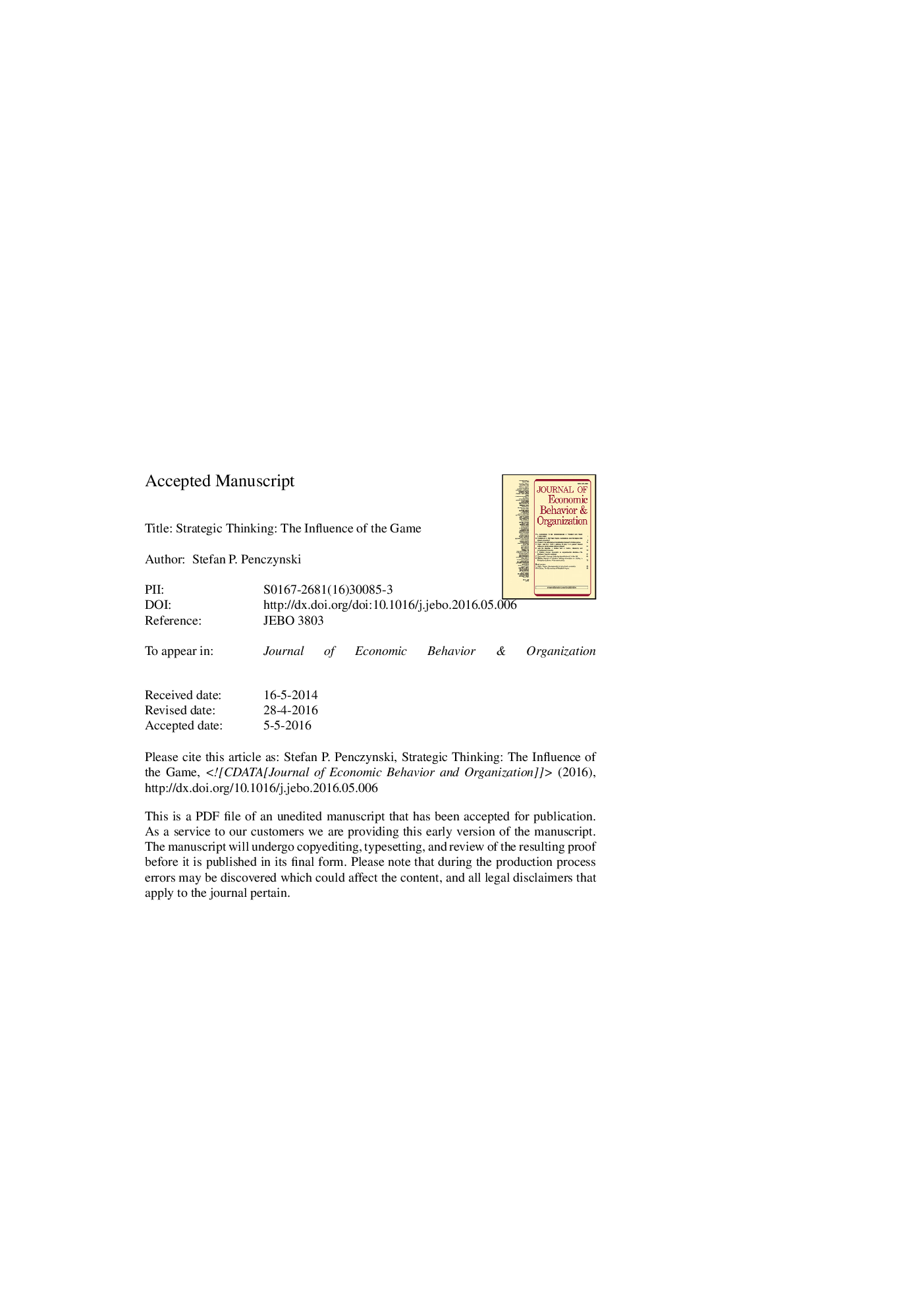| Article ID | Journal | Published Year | Pages | File Type |
|---|---|---|---|---|
| 7242776 | Journal of Economic Behavior & Organization | 2016 | 35 Pages |
Abstract
In order to assess the extent to which features of a game affect the strategic sophistication of the people involved, this study investigates the relevance of differing objectives (matching/mismatching) and of virtually moving first or second in the “hide and seek” game. In three different treatments, mismatchers and matchers are not found to exhibit significantly different levels of reasoning although level averages and winning probabilities always are in favor of the matchers. Varying the virtual timing of the game has a significant impact on the shape of the level distribution. The analysis relies on intrateam communication, whose coding is shown to be stable and replicable.
Related Topics
Social Sciences and Humanities
Economics, Econometrics and Finance
Economics and Econometrics
Authors
Stefan P. Penczynski,
